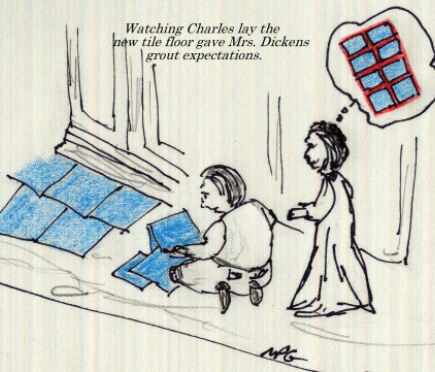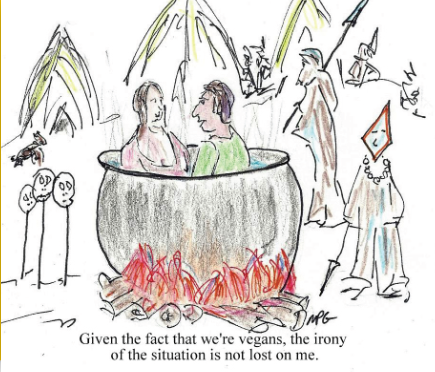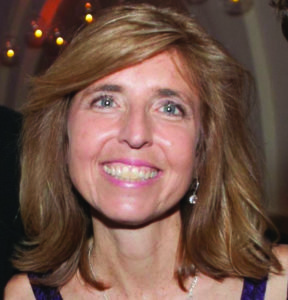With 40-50% of marriages in the United States ending in divorce, it makes one wonder about the reason for that shockingly high statistic, and what can be done to keep a marriage happy and healthy.
Michelle Obama’s book The Light We Carry focuses on navigating relationships, sharing what she has learned from her own marriage. In an interview with National Public Radio, she continuously highlights that all marriages take work. She refutes the common philosophy that a marriage should be 50/50 at all times. Instead, emphasizing that at any given moment, it is more than likely that one person will be giving more. Over time, these compromises should go both ways, but it is unrealistic to expect an equal share of work to be a constant. Michelle Obama’s vulnerability opens the discussion of what a genuine long-term marriage looks like and what skills are vital in preserving a healthy relationship. She fears that by avoiding this discussion, it causes people to bolt the instant they face a period of discomfort. So, let’s talk about it. Because a marriage can never be perfect, but there are mindset shifts, skills, and tools that can be utilized to try and help make it work.

Jane Winfield, a clinical social worker at Repose, which has recently opened an office in Pleasantville, shared her insights on how a happy marriage can be sustained. First, she shared the importance of not running from conflict, and letting go the common misconception that anger is a negative emotion. In reality, anger is inevitable, so avoiding it will only increase tension.
“Healthy and happy couples are just as likely to get angry at each other. It’s more about what we do with anger. Are we able to remain respectful, supportive, and loving? Are we able to maintain our closeness and intimacy even if we’re angry?”
And when anger and conflict do arise, which they will, Winfield highlighted that it is not about “looking at the content of the conflict as much as the process of it. So, it’s not about what we are arguing about; what’s more important is how are we arguing. Are we arguing in ways that are gentle, that are respectful, and that make our partner feel heard and seen?”
Winfield also often recommends that each member of a relationship should see their own individual therapist before embarking too deeply in couples’ therapy. In individual therapy, couples can explore how their own past is bleeding into their current relationship. For example, they will examine the types of conflict they experienced in their own households as “people have often learned a lot of unhealthy communication patterns growing up.” By examining old wounds from past relationships, it helps each individual heal so that “those wounds don’t just keep getting replicated in the present.”
Sharon Okun, life coach and energy healer in Armonk, also spoke of the importance of caring for yourself “to more effectively show up in your relationships.” Okun “helps people calm down, get centered, and be present in their bodies.” When we slow down, breathe, and try to find little moments of joy throughout our days, we are happier, calmer, and less irritable. If we don’t take the time to assess our own emotions, we are likely to take something personal out on our partner before we have even had the ability to process it. By teaching people how to get grounded, Okun therefore helps them be calmer in their relationships as well. After all, we must be able to show up for ourselves before we have the capacity to show up for someone else.
Perhaps a bottom line is that to have a happy and healthy relationship with another person, one must also have a happy and healthy relationship within themselves. Jodi Baretz, a psychotherapist and mindset and relationship coach in Chappaqua, says that it is vital that each partner maintains their individuality and personal life for a marriage to be sustainable. “When you rely too much on the other person it puts too much pressure on them. You need to have your own friends and your own life because one person can’t be everything to you,” explained Baretz. She provided the example that if you really enjoy traveling, but your partner does not, you can find a friend to travel with rather than either forcing your partner to go with you or abandoning your passions–both of which would only lead to resentment for the other person.
 Baretz also suggests prioritizing making time for each other and having fun together: “It’s not just about the to-do lists and the kids. “Try doing an activity together where you laugh together and just have fun,” she said. And this may require a couple to expand their horizons past a dinner date, and rather try something new and exciting.
Baretz also suggests prioritizing making time for each other and having fun together: “It’s not just about the to-do lists and the kids. “Try doing an activity together where you laugh together and just have fun,” she said. And this may require a couple to expand their horizons past a dinner date, and rather try something new and exciting.
Baretz also spoke on the importance of acceptance of the other person. She often finds people coming to her complaining about their partner and how they wish that they would change. Trying to change someone else to be happy in the relationship is most often unachievable–and will only build resentment. Baretz explained that “true power isn’t controlling the other person, but being able to control your own thoughts, feelings, and behaviors.” If we focus on what we can control, like how we respond to the other person, it can in turn shift their behavior.
Indeed, when we stop fixating on someone’s flaws, it also allows us to truly listen to what they are saying. Throughout Baretz’s experience helping people with their marriages, she has found that a common theme amongst struggling couples is someone not feeling heard, or seen. She shares that “one of the quickest ways to get a relationship back on track is to really acknowledge, appreciate, and validate the other person.” And the only way to make your partner feel heard, is to genuinely listen, and more importantly, to listen without becoming defensive. Rather than rushing to justify your actions when your partner talks about how what you do is making them feel, accept that the behavior you are being accused of is probably not something that they are making up out of thin air. When we take our ego out of the equation, an argument with a partner can be productive, serving as a clue as to why the relationship is having issues.
When you check your own behavior, you can evaluate how you can be a better partner before placing blame on the other person for the relationship’s faults. Baretz advises that anyone in a marriage should ask themselves: “would you want to be married to you?”
About our cartoonist: Michael Gyory is the third of three only children reared in the idyllic woods of Katonah. He graduated from John Jay High School and holds a Master’s degree in Communication from U. Penn. He is the son of Hungarian survivors and proudly serves as Chair of the Holocaust and Human Rights Education Center. Michael currently lives in Irvington, and has one son who, he says, is a much better artist.

